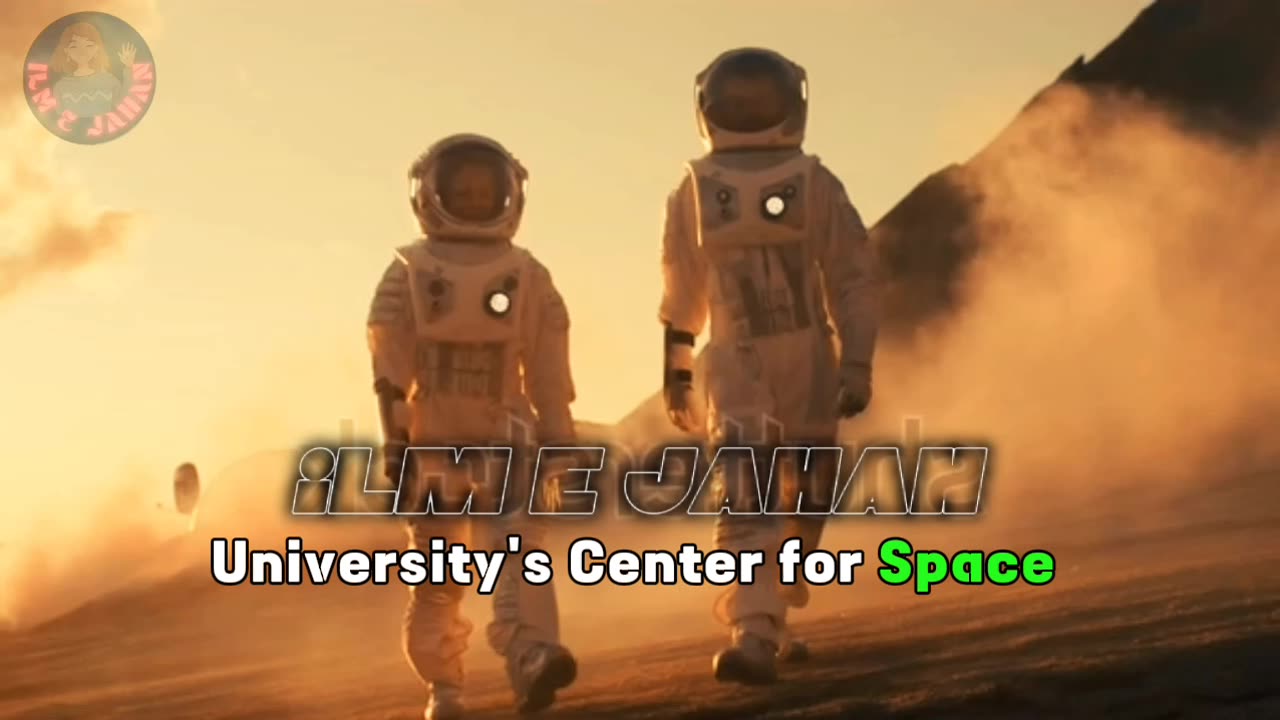Premium Only Content

It’s Time to Study Space Sexology
The prospect of humans becoming an interplanetary species, with plans to establish colonies on Mars and explore other celestial bodies, has led scientists to advocate for the study of reproductive health and sexual behavior in space, a field known as "space sexology." This emerging field is considered essential to ensuring humanity's survival as we venture beyond Earth.
While there have been scientific experiments involving reproduction in space, such as artificially inseminating frog eggs, no comprehensive research has addressed the intricacies of human sexual functions and intimate relationships in space. According to Simon Dubé, a psychologist from Concordia University, it's a crucial aspect of life in space that has been relatively unexplored.
NASA, which has traditionally been cautious about addressing the topic, is now showing a greater willingness to consider research in this area. Their primary concern remains the health and safety of crew members during extended space missions. If a need for in-depth studies on reproductive health and sexuality in space arises, NASA would be prepared to take appropriate measures.
One of the key factors influencing reproduction in space is radiation. Astronauts are exposed to significantly higher levels of radiation compared to people on Earth, as the Earth's atmosphere and magnetic field protect us from most space radiation. The gonads, which include the ovaries and testes, are particularly sensitive to radiation damage, potentially leading to cancer or genetic mutations passed down to offspring.
Another concern is the impact of microgravity, which affects astronauts' biological functions in ways that are not fully understood. For example, some female mice sent to the International Space Station experienced disrupted ovulation and lost their corpus luteum, a structure important for maintaining pregnancies.
So why hasn't NASA conducted more research in this area? According to Virginia Wotring, a professor at Baylor University's Center for Space Medicine, it has never been a part of NASA's core mission to colonize other planets. The constraints of budgets and priorities have limited research in areas that are not immediately essential. However, as we contemplate the possibilities of long-term space travel and colonization, it becomes increasingly important to gather more data on how space conditions affect human biology.
In conclusion, space sexology is an emerging field of study driven by the need to understand human reproduction and intimate relationships in space. As humanity's ambitions expand beyond Earth, researchers recognize the importance of investigating these topics to ensure the well-being and survival of future spacefaring civilizations. Alongside sexual health, a broader understanding of the physiological effects of long-term space travel is essential for preparing for the challenges of extended missions and planetary colonization.
-
 58:00
58:00
Donald Trump Jr.
10 hours agoBreaking News on Deadly Plane Crash, Plus Hearing on the Hill, Live with Rep Cory Mills & Sen Marsha Blackburn | TRIGGERED Ep.212
164K120 -
 52:03
52:03
Kimberly Guilfoyle
8 hours agoLatest Updates on Deadly Air Collision, Plus Major Hearings on Capitol Hill,Live with Marc Beckman & Steve Friend | Ep.192
92.1K29 -
 1:17:16
1:17:16
Josh Pate's College Football Show
7 hours ago $0.89 earnedMichigan vs NCAA | ESPN’s ACC Deal | Season Grades: UGA & Miami | Notre Dame Losses
34.8K2 -
 1:26:50
1:26:50
Redacted News
7 hours agoWhat happened? Trump DESTROYS the Pete Buttigieg run FAA for tragic airline crash | Redacted News
220K168 -
 LIVE
LIVE
VOPUSARADIO
1 day agoPOLITI-SHOCK! Hero Angela Stanton King & Wrongfully Imprisoned J6 Prisoner Josh Pruitt!
68 watching -
 43:37
43:37
Candace Show Podcast
7 hours agoThe Taylor Swift Plot Thickens | Candace Ep 142
139K119 -
 1:37:33
1:37:33
Common Threads
5 hours agoLIVE DEBATE: Trump's Wild Handling of Plane Tragedy
25K5 -
 54:45
54:45
LFA TV
11 hours agoConfirmation Chaos | TRUMPET DAILY 1.30.25 7pm
37.2K3 -
 1:57:53
1:57:53
Revenge of the Cis
8 hours agoEpisode 1437: Kash Me Outside
69.7K26 -
 6:34:04
6:34:04
Dr Disrespect
11 hours ago🔴LIVE - DR DISRESPECT - WARZONE - CRAZY TRIPLE THREAT CHALLENGE
161K33